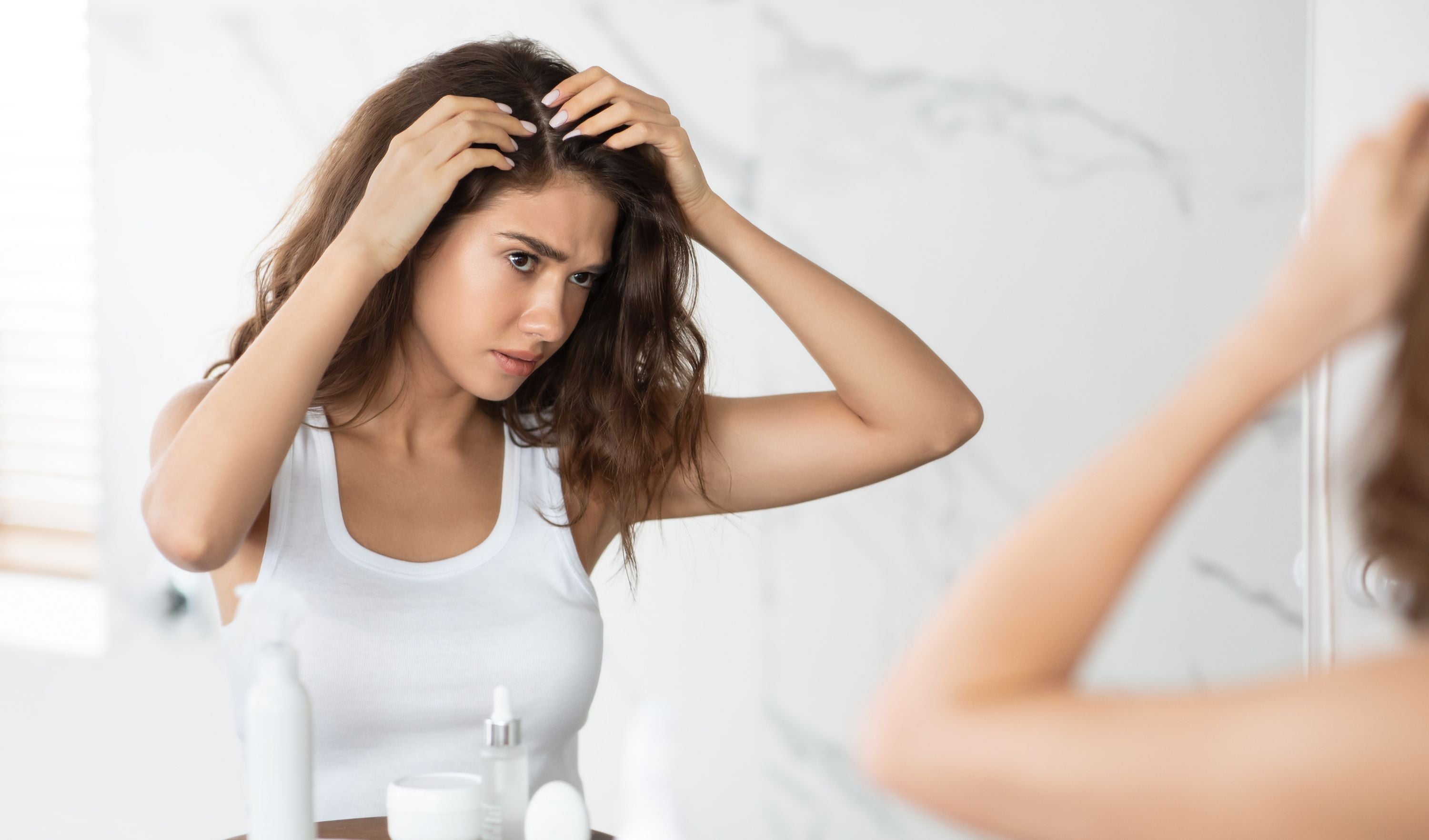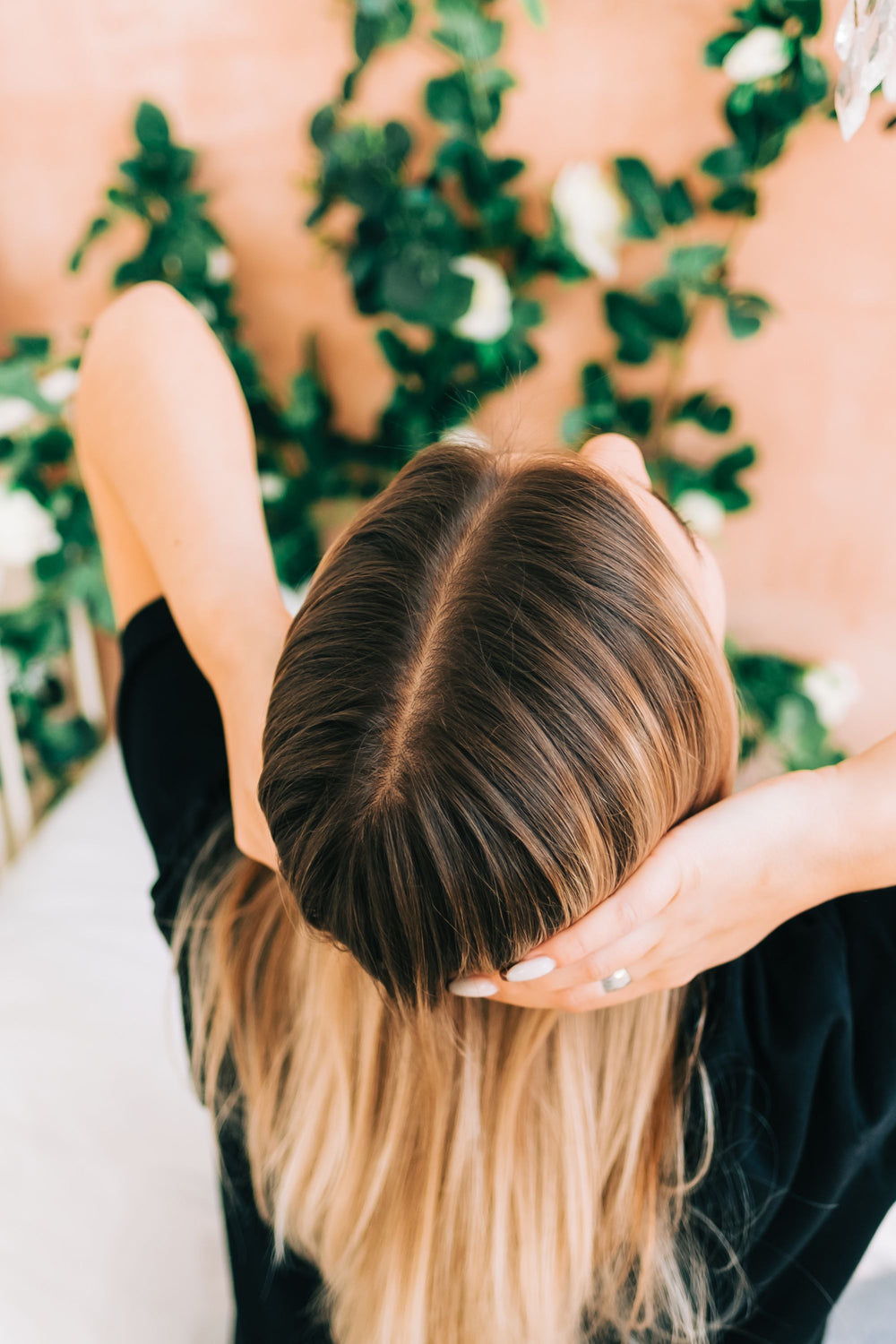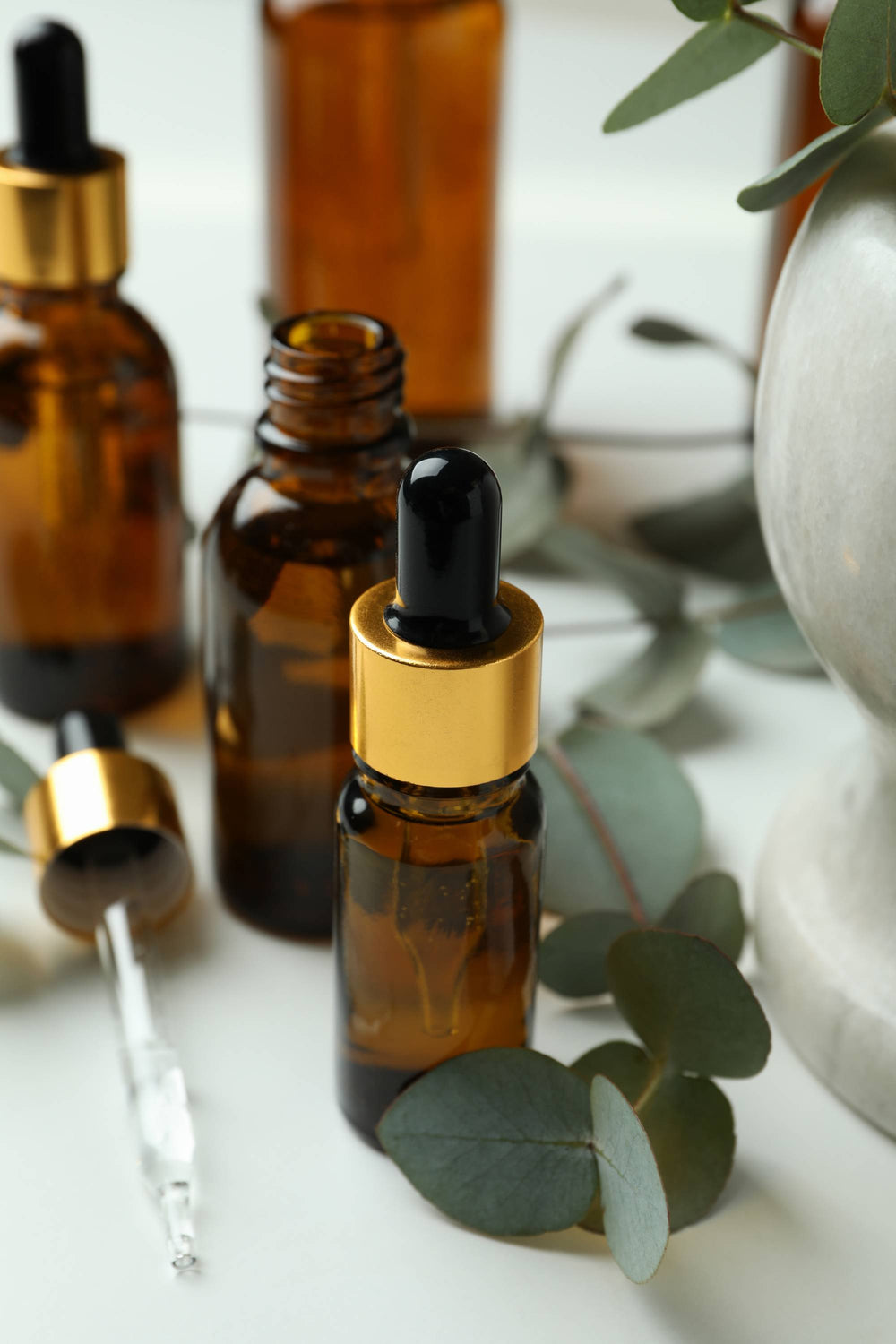If you suffer from itching, redness, or scales on your scalp, you may have psoriasis or eczema. These skin conditions can be difficult to distinguish, but it is important to recognize them to get the appropriate treatment. In this article, we examine the differences between scalp psoriasis and eczema, including their symptoms, their causes, and their treatments.

I. What is psoriasis?
1. Symptoms of psoriasis
Psoriasis is an autoimmune disease that affects the skin, but can also affect the scalp.
The symptoms of scalp psoriasis can vary depending on the severity of the disease. The most common form of scalp psoriasis is plaque psoriasis, which appears as red and scaly plaques on the scalp.
These plaques can be accompanied by itching and pain. The silvery scales that detach from the skin can accumulate on the scalp and be visible on clothing. Scabs on the scalp can also be a symptom of scalp psoriasis.
Scalp psoriasis can also cause significant inflammation, which can lead to pain and a burning sensation on the scalp. The hair can become dry and brittle, which can result in hair loss or a loss of volume.
In the most severe cases, scalp psoriasis can cause severe inflammation and permanent hair loss. People with scalp psoriasis may also be more prone to skin infections and folliculitis.
2. Causes of psoriasis
What are the symptoms of scalp psoriasis?
Symptoms of scalp psoriasis include red, scaly patches, itching, pain, and possible hair loss.
The exact causes of scalp psoriasis are not completely known. However, it is widely accepted that psoriasis is an autoimmune disease, which means that the body's immune system attacks healthy skin cells, causing inflammation and excessive proliferation of skin cells.
This excessive proliferation of cells leads to the formation of red, scaly plaques that are typical of psoriasis.
Genetic factors also play an important role in the development of scalp psoriasis. People with a family history of psoriasis are more likely to develop the disease.
Studies have identified several genes associated with psoriasis, suggesting that the disease is partly inherited.

Other risk factors can also contribute to the development of scalp psoriasis. Stress, skin infections, skin injuries, and allergic reactions can all worsen the symptoms of psoriasis.
Hormonal changes, such as those that occur during puberty and menopause, can also impact the development of psoriasis.
Finally, lifestyle can also play a role in the development of scalp psoriasis. Eating habits, smoking, alcohol consumption, and lack of physical exercise can all worsen the symptoms of psoriasis.
3. Psoriasis, natural solutions
Although there is no natural cure for scalp psoriasis, there are several options to help reduce symptoms and improve the health of your scalp. Natural solutions can help calm inflammation and itching, hydrate the skin, and reduce the appearance of plaques.
One of the natural solutions for scalp psoriasis is the use of essential oils.
Essential oils such as lavender oil and tea tree oil can help relieve itching and inflammation. These oils can be diluted in a carrier oil, such as coconut oil, and then massaged into the scalp to help reduce symptoms.
Diet can also play an important role in combating scalp psoriasis.
Foods such as fresh fruits and vegetables, healthy fats, nuts, and seeds can help reduce inflammation in the body. Avoid processed foods, sugar, and refined carbohydrates, as they can worsen symptoms.
Finally, stress can worsen the symptoms of scalp psoriasis, so it is important to take time to relax and reduce stress. Practices such as meditation, yoga, and deep breathing can help reduce stress and improve overall skin health.

Although scalp psoriasis is a chronic condition, there are natural solutions to help relieve symptoms and improve the health of your scalp. Essential oils, diet, and stress management are natural options to consider. It is important to talk to your doctor before trying natural remedies for scalp psoriasis to avoid interactions with other treatments.
II. What is eczema?
L'eczema of the scalp is a common condition that can cause bothersome and uncomfortable symptoms.
What are the possible causes of scalp eczema?
The causes of scalp eczema include genetic factors, allergies, stress, infections, and the use of certain hair products.
1. Symptoms of eczema
The symptoms of scalp eczema can vary from person to person, but the most common are intense itching, redness, scales, crusts, scalp bumps, patches, pain, and hair loss.
Itching is one of the most common symptoms of scalp eczema and can cause significant irritation. Redness is also common and can be localized or widespread on the scalp.
Scales are dry skin flakes that detach from the scalp, while crusts can be dry and thick or wet and sticky. Red and scaly patches may also appear on the scalp, which can cause discomfort and embarrassment.
In some cases, scalp eczema can also cause pain or burning sensations, and if the condition is not treated, it can cause temporary or permanent hair loss.
If you exhibit these symptoms, it is important to consult a healthcare professional for an accurate diagnosis and appropriate treatment.
2. Causes of eczema
Scalp eczema is a common skin condition that can be caused by several different factors. The causes of scalp eczema can vary from person to person, but here are some of the most common causes:
- Genetics: Studies have shown that scalp eczema can be caused by genetic factors. If you have a family history of eczema, you are more likely to develop this condition.
- Hair products: The use of certain hair products, such as shampoos, hair dyes, and styling products, can cause or worsen scalp eczema. Some ingredients in these products can irritate the skin and cause allergic reactions.
- Allergies: Food or environmental allergies can cause scalp eczema in some people. Common allergens include foods, chemicals, dust mites, and dust.

- Stress: Emotional stress can cause or worsen scalp eczema. Stress can affect the immune system, thereby increasing the risk of developing eczema.
- Underlying medical conditions: Certain medical conditions, such as psoriasis, asthma, and allergies, can increase the risk of developing scalp eczema.
- Climate: Climate changes can cause scalp eczema in some people. Cold and dry temperatures can dry out the skin, which can worsen eczema.
- Infections: Fungal and bacterial infections can cause scalp eczema in some people. These infections can cause skin inflammation and itching.
These causes can be combined and interact with each other to cause scalp eczema.
3. Eczema, natural solutions
There are several natural solutions that can help treat scalp eczema. Although these natural remedies are not a miracle cure, they can help relieve symptoms and prevent eczema flare-ups. Here are some of the most common natural solutions:
- Essential oils: Essential oils can help relieve inflammation and itching of the scalp. Some essential oils, such as lavender oil, tea tree oil, and rosemary oil, can help reduce inflammation and relieve itching.
- Aloe vera: Aloe vera gel can help reduce inflammation and hydrate the skin. It can be applied directly to the scalp to help relieve itching and reduce redness.
- Coconut oil: Coconut oil is another popular natural remedy for scalp eczema. Coconut oil can help moisturize the skin and reduce inflammation. It can be applied directly to the scalp and left on for a few hours before washing.

- Diet: Some research suggests that diet may play a role in scalp eczema. Certain foods, such as dairy products, eggs, and nuts, can worsen eczema symptoms in some people. Conversely, other foods, such as fruits and vegetables rich in antioxidants, may help reduce inflammation.
- Stress reduction: Stress can worsen scalp eczema in some people. Practicing relaxation techniques, such as meditation or yoga, can help reduce stress and improve skin health.
- Use mild and natural shampoos and avoid products that contain too many allergens.
-
Avoid very hot water, and rinse your hair with lukewarm water to avoid irritating the cuticle.
How does stress affect the scalp?
Stress can cause itching, burning sensations, and crusts on the scalp, thereby worsening conditions like psoriasis and eczema.
III. Dietary supplements to treat eczema and psoriasis
In addition to topical treatments, it is highly recommended to nourish your scalp from within with dietary supplements for hair care. Indeed, external treatments only cover 20% of the skin layer and therefore only the epidermis. To reach the remaining 80%, you need to act from the inside. This is an action that only dietary supplements can perform.
Hair is composed of nearly 95% of keratin, a protein naturally synthesized by the body from sulfur-containing amino acids, B vitamins, and minerals. It is essential to maintain good blood circulation in the micro-vessels and to soothe the inner scalp by providing all of these active ingredients.
Our range of hair dietary supplements combines different formulas to fight against scalp problems and their causes.
It is in the heart of the scalp that the delivery of nutrients and oxygen necessary for hair growth takes place.
THE Microcirculation Detox is a plant-based formula that promotes the elimination of toxins, boosts blood circulation, and facilitates the delivery of essential nutrients to the core of the bulb to prevent greasy dandruff, itching, and excess sebum.
The omega-3s of our Absolute Omega 3 help reduce inflammation of the very dry scalp. For healthy hair fibers and shiny hair, our Shoot Complex deeply nourishes the hair bulb by providing it with a high dose of all the constituent active ingredients of the keratin.
Zinc Absolute provides a high dose of zinc, a trace mineral that ensures a healthy scalp and has soothing and anti-inflammatory benefits to calm the irritated scalp.
The two other formulas to favor for eczema are: the Soothing Skin Complex and the Absolu Probioderme.
- Our Soothing Skin Complex, rich in SOD, protects the dermis from external aggressions, prevents cells from being damaged, and soothes itching and redness caused by eczema, regardless of its type.
- The Absolu Probioderme contains different strains of skin-derived probiotics that restore the pH of the epidermis and reduce marks left by skin conditions such as eczema or psoriasis. Probiotics are beneficial bacteria essential to our microcosm throughout our body. Our intestine has one, but so does our skin. The skin must have good bacteria to be healthy and balanced.
Just like hydroalcoholic gels kill all the bacteria present on the skin of the hands and often dry them out, some hair care products attack the scalp, dry it out, kill the good bacteria, and then the scalp is no longer protected. The symptoms of scalp eczema most often appear at this time.
To integrate your hair care routine with your dietary supplements, choose a moisturizing shampoo without surfactants, limit heat sources, space out shampoos as much as possible, and massage your scalp with gentle circular motions.
Which essential oils are recommended for scalp psoriasis?
Essential oils such as lavender oil and tea tree oil are recommended for their anti-inflammatory and soothing properties.
How does diet affect scalp psoriasis and eczema?
A diet rich in fruits, vegetables, and healthy fats can help reduce inflammation, while processed foods can worsen symptoms.








